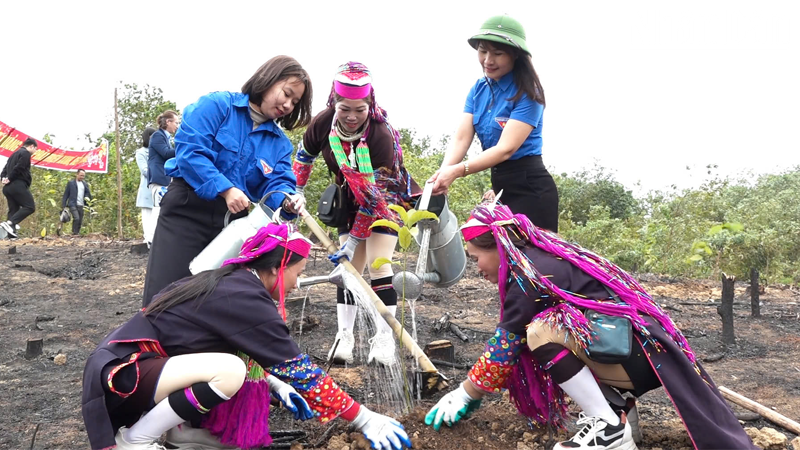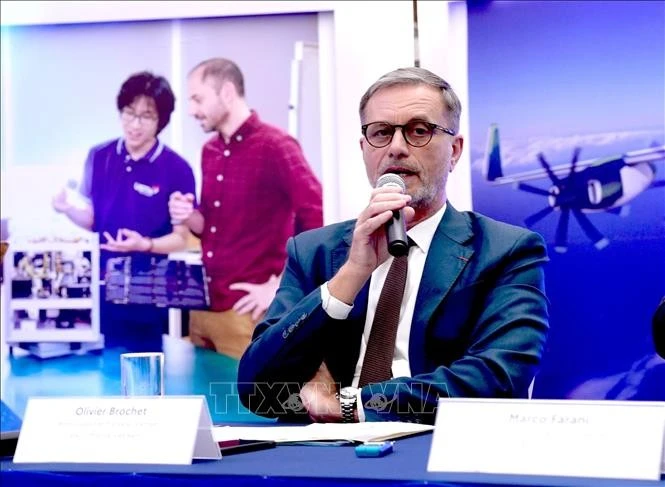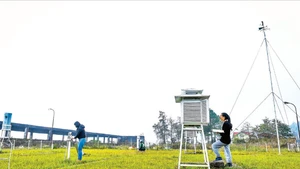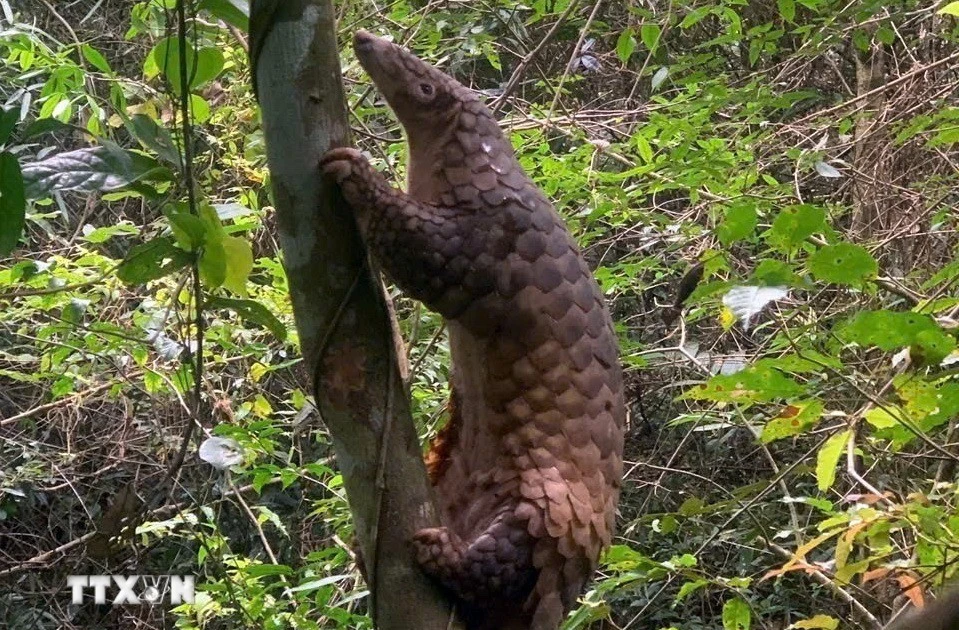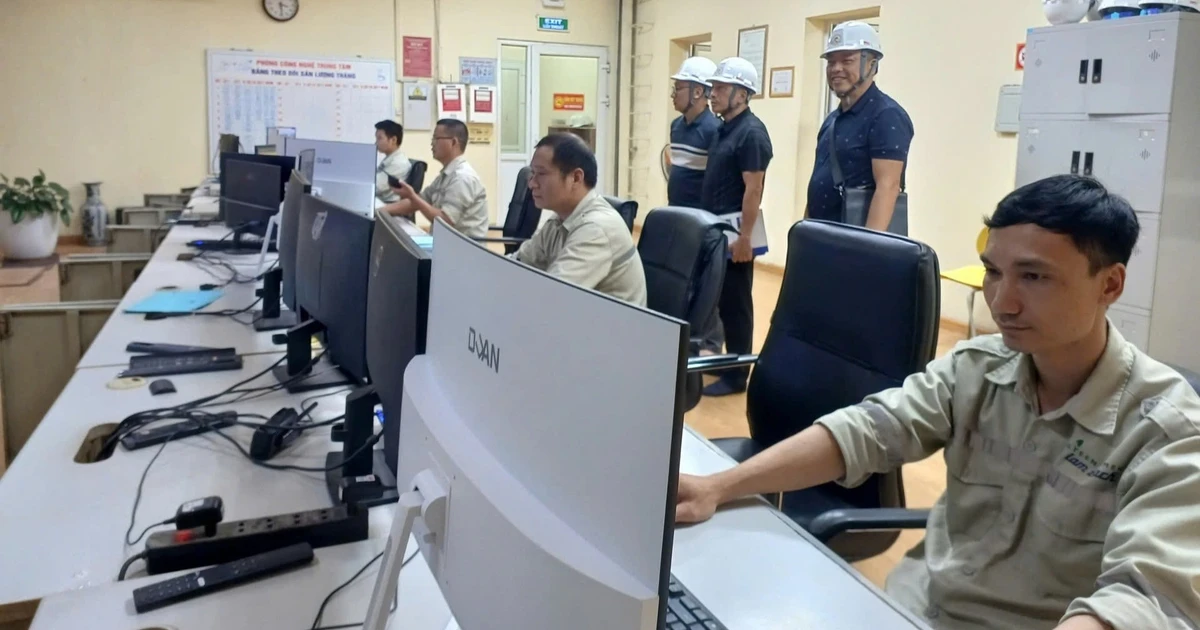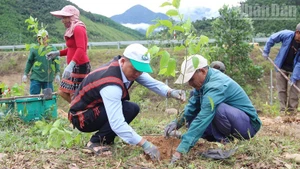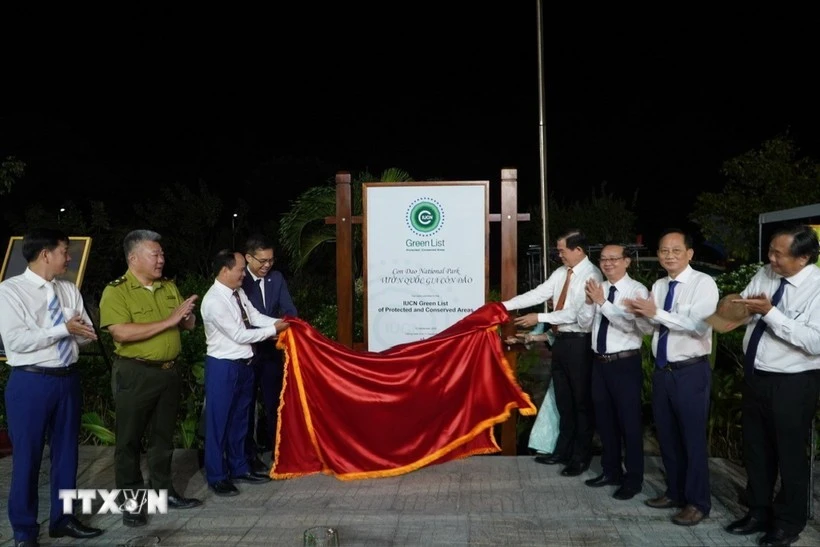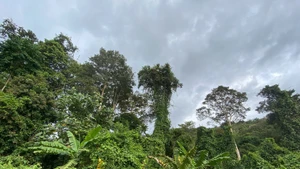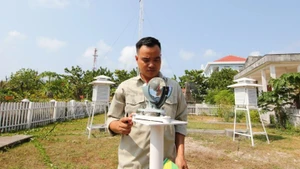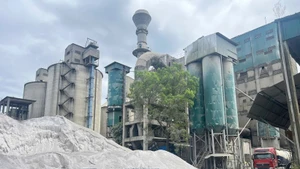Quang Ninh has 434,000 hectares of forest and forestry land, with a forest coverage rate of nearly 55%. However, in the aftermath of Typhoon Yagi, which directly hit the province in September 2024, Quang Ninh’s forest coverage dropped by 15 percentage points to 40%.
In the wake of Yagi, Ba Che Forestry Company suffered damage to approximately 3,500 hectares of planted forest.
Chiu Van Quynh, Deputy Director of Ba Che Company, said that over 14 million seedlings are needed to replant all 3,500 hectares of damaged forest. The company can produce about 8 million seedlings, with the remainder purchased from external sources. In 2025, the company plans to plant 400 hectares of new forest.
According to the Quang Ninh Department of Agriculture and Environment, the current planting density for native tree species and large timber trees ranges from 500 to 1,100 trees per hectare. With nearly 32,000 hectares of forest to be planted in 2025, the province needs about 35 million forestry seedlings of various types.
Quang Ninh currently has 144 nurseries, including 41 facilities registered for business and 103 smaller nurseries run by households and individuals, with a total production capacity of 106.7 million seedlings annually. These include acacia, cinnamon, pine and various native tree species to serve the province's reforestation needs. To improve the quality of planted forests, Quang Ninh Province has also focused early on supplying forestry seedlings to meet the province's forest planting and development needs.
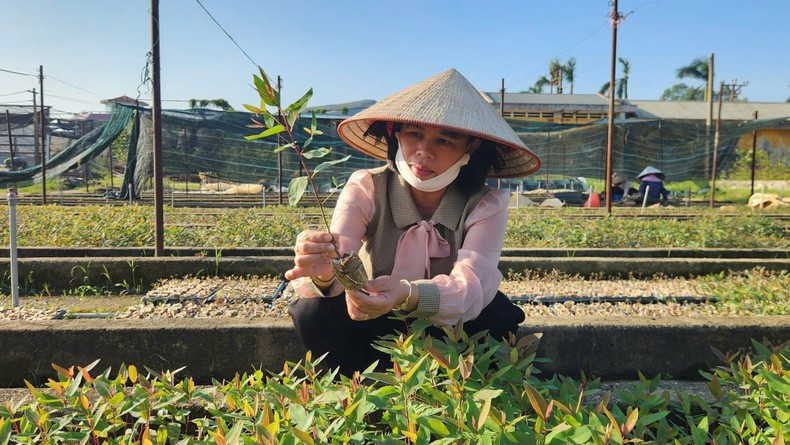 |
| Ngo Thi Nguyet introduces the forestry seedlings produced by the Quang Ninh Centre for Agro-Forestry Science and Production. |
Ngo Thi Nguyet, Deputy Director in charge of the Quang Ninh Centre for Agro-Forestry Science and Production, said that compared to previous years, this year's ordered production of forestry seedlings is expected to increase by about 50% because forestry establishments and households in the province suffered severe damage from Typhoon Yagi last year. Therefore, the centre will focus all resources on producing seedlings from the laboratory until they are ready for the nursery.
It usually takes 40 days to produce acacia seedlings and 30 days for eucalyptus, so along with focusing on production, the centre is working to reduce all costs to lower prices for farmers compared to current market prices.
Nguyet added that in 2025, the centre will produce about 2.5-3 million tissue-cultured plants from the laboratory, of which about 1.5 million plants will be moved to the nurseries. The remaining seedlings will be distributed to other nurseries.
With the strong increase in demand for forestry seedlings, the supply produced within the province can fully meet the reforestation needs of organisations and individuals. In the first two months of 2025, the province's concentrated forest planting area reached nearly 1,300 hectares, including more than 42 hectares of protection forest and more than 1,200 hectares of production forest. The area planted with large timber trees, including ironwood, mangletia and chukrasia, was estimated at 35 hectares.
Additionally, Do Ngoc Nam, Chairman of the Quang Ninh Farmers' Association, said that in the coming time, the association will coordinate with authorities and organisations to support people in quickly rebuilding lost forest areas, while also collaborating with specialist units to open training courses and workshops to transfer scientific knowledge and techniques for growing new tree varieties and medicinal plants under the forest canopy.
Nghiem Xuan Cuong, Vice Chairman of the Quang Ninh People's Committee, also noted several tasks for sustainable forestry development in 2025. Specifically, there needs to be a balance between planting large timber trees and production forests under the motto "use short-term to nurture long-term", promoting under-canopy economy linked with eco-tourism; supplying forestry seedlings of guaranteed origin and quality; and promoting the application of science and technology in afforestation and forestry development.
He stressed the need to strengthen inspection and control of seedling businesses that increase prices abnormally or unreasonably, taking advantage of the post-typhoon situation where demand for seedlings and materials for reforestation is high. At the same time, the province will strictly handle violations in forestry seedling management to control seedling quality well, serving the province's forestry development.
Cuong emphasised that authorities must absolutely not be subjective, negligent, or have a defeatist attitude in forest management, protection and fire prevention; and must urgently complete the reorganisation, innovation, development and improvement of the effectiveness of agricultural and forestry companies and professional agencies advising on forestry activities in the area.
